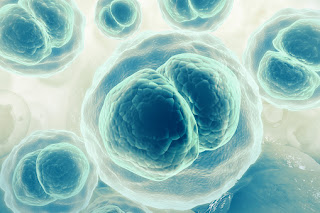What
are the pros and cons of freezing your eggs? You'll have younger,
"healthier" eggs to try to conceive with later.
You
may require these if you are much older and your natural fertility has declined
with age, or if you have cancer and must undergo chemotherapy or radiotherapy,
both of which damage your eggs.
Peace of mind. It's difficult
to overestimate how much this could mean to you. Multiple friends strongly
advised me to freeze my eggs for the psychological benefit of having done
something and feeling like my biological timeline had been extended.
In
the words of one friend, "it chills you the fuck out," which can also
influence the confidence or vibe you project towards men during dating (which
is useful when some men flee at the slightest hint of a woman seeking
commitment, though that may be a useful anti-selection filter if you are indeed
looking for a life/parenting partner).
Unlike
freezing embryos, which is admittedly not an option for most people, freezing
eggs does not commit you to a specific partner and potentially messy
"custody" issues in the event of a partner split.
What are the pros and cons of freezing your
eggs? Cons:
It is expensive. Egg freezing
costs between $10000 and $15000 per cycle and multiple cycles may be required
to obtain enough eggs for an acceptable chance of live birth.
Read: When Do I Give My Baby Meat
When you're younger, you're more likely to get more eggs from a single cycle, and you also need fewer to have the same chance of having a live birth.
However,
the younger you are when you freeze your eggs, the longer the time window in
which you may become pregnant naturally and not need to use your frozen eggs.
There are also annual storage costs, which can
be as high as $500 per year. Not to mention the cost of IVF and attempting to
use the eggs later on.
It's
both disruptive and intrusive. You're injecting yourself with hormones to force
all of your follicles to mature eggs, and then the doctor has to go in and
extract them while you're under twilight anesthesia.
Read: What Are The Best Vitamins For Month-Old Baby?
In
addition to the potential/likely discomfort from the hormones, there is a risk
of ovarian hyperstimulation syndrome or ovarian torsion during the follicle
stimulation process, and the extraction process is obviously invasive and
carries a risk, even if minor.
It is not a guarantee that children will be born later. In this regard, egg freezing can provide a false sense of security.
Many things can still go wrong, such as if your eggs do not fertilize or form embryos, or if you are extremely unlucky and the storage facility where your eggs are kept loses power and the eggs become unfrozen.
Unfortunately, this latter scenario has occurred several
times.
Read: Which Cooking Method Is Best for Baby Food?
It's a time-consuming and somewhat unpredictable process that can be difficult to fit into a busy work schedule.
Even deciding when to begin the process isn't as
simple as picking a date on the calendar because it must be timed to your
menstrual cycle (you can try to induce some predictability by using hormonal
birth control to time the start of your period, but this may complicate hormone
interactions later, so it's preferable not to do so).
During
stimulation, which typically consists of 8-12 days of hormone injections, you
must go in for blood tests and ultrasounds every few days at first and daily
near the end so the doctor can monitor follicle growth and adjust medications
as needed.
If
you are deemed ready and perform the trigger shot, your extraction procedure
must take place exactly 36 hours later, but it is impossible to predict when
you will be instructed to perform the trigger shot.
If
you dislike needles, having to inject yourself 3-4 times per night will be a
nightmare. You can hire a nurse service in some places, but it is expensive and
inconvenient. I believe most people get used to the needles and find them
tolerable.
Read: Will My Prenatal Vitamins Affect The Health Of My Baby During Pregnancy?
This is minor in the grand scheme of things, but for exercise junkies, not being able to work out during the process is frustrating.
It's fine at first, but as
your follicles and ovaries grow in size, you don't want to engage in any
intense or twisting exercise, such as running or yoga. Long walks, on the other
hand, are effective.
FAQs Related To What Are The Pros And Cons Of
Freezing Your Eggs
What is the best age to freeze your eggs?
"Studies show that women who freeze their eggs before the age of 35 have a better chance of getting pregnant than women who freeze their eggs after the age of 35."
This is due to the fact that the more eggs that are retrieved and frozen, the
better the chances of a successful pregnancy.
Do you regret freezing your eggs?
Ultimately, 89% of women said they were glad they had frozen their eggs, regardless of whether or not they were used.
Patients were far more likely to regret their decision
if they were able to freeze fewer eggs (10) or felt they were poorly educated
on the process beforehand.
Read: How Has Medical Technology Improved Childbirth In Recent Years?
Does egg freezing cause weight gain?
Weight
Gain: During the egg freezing process, it is not uncommon to gain a small
amount of weight (less than 5 pounds). This is due to hormones causing your
ovaries to enlarge, and it should not be considered permanent weight, but
rather water weight.
Can I freeze my eggs at 35?
According
to research, a woman must freeze at least 14 eggs at the age of 35 in order to
have an 80% chance of having a baby from her frozen eggs.
How many eggs do you need to have a baby?
An
introduction to assisted reproduction. With only one egg, any successful
pregnancy is possible. As more women postpone pregnancy until their 30s and
40s, becoming pregnant is becoming a sociotechnical process.








